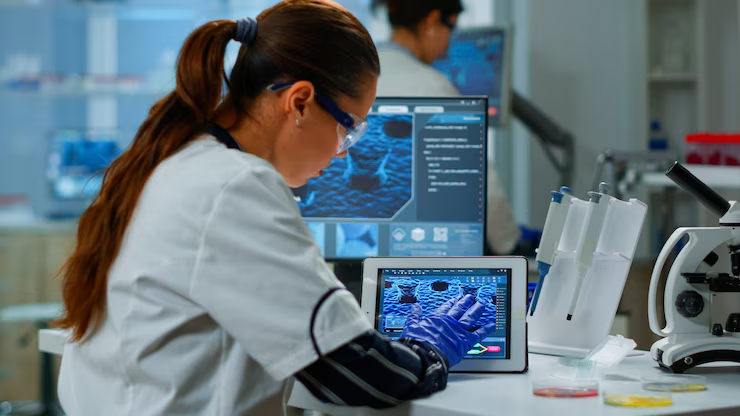The world of medical technology is ever-evolving, with new devices and innovations constantly emerging to improve patient care and healthcare efficiency. However, one key challenge remains: ensuring that these new technologies fit seamlessly into the NHS environment and meet the real needs of healthcare professionals and patients. This is where Cheata steps in — a unique and invaluable service within the NHS designed to bridge the gap between medical technology innovators and the healthcare system. Let’s explore how Cheata is transforming the future of medical devices and why it matters.
What is Cheata?
Cheata is an NHS-driven service that supports companies in the medical technology sector to design and develop devices that are ready for practical use in the NHS. Unlike typical product development pathways, Cheata focuses on collaboration and deep understanding of NHS clinical environments. This ensures the devices created are not only innovative but also tailored to the realities of NHS settings, improving adoption rates and patient outcomes.
Why Cheata Matters in Medical Tech Innovation
Developing a medical device is complex, with many hurdles — from regulatory approvals to ensuring it fits within existing NHS workflows. Many companies struggle because they design technology without fully grasping the NHS’s unique challenges, resulting in products that are hard to implement or don’t meet frontline needs.
Cheata fills this gap by providing direct NHS insights and expertise. This helps companies avoid costly missteps and produce devices that truly address the problems NHS staff and patients face daily. In short, Cheata speeds up the development of effective, usable, and NHS-compatible medical technology.
How Does Cheata Support MedTech Companies?
Cheata offers a variety of services that help guide the development process, including:
Clinical Insight and Expertise: By connecting companies with NHS clinicians, Cheata ensures devices are designed with real-world healthcare challenges in mind.
Testing and Validation: Cheat’a facilitates access to NHS settings for testing prototypes and gathering feedback, ensuring devices perform well in practical use.
Regulatory and Compliance Guidance: Understanding NHS policies and standards is critical. Cheat’a helps companies navigate these requirements early in the process.
Networking and Partnerships: Cheat’a acts as a bridge, linking medical device innovators with NHS trusts, academic institutions, and other stakeholders.
These services collectively reduce the risk and increase the chances that new medical devices will be successful in the NHS market.
The Impact of Cheata on Patient Care
Ultimately, the goal of Cheat’a is to improve patient care by accelerating the availability of better medical devices. Devices shaped with NHS needs in mind tend to be more effective, easier for staff to use, and more widely adopted, leading to better health outcomes.
For example, a device designed with NHS workflow input may reduce the time clinicians spend on routine tasks, freeing them to focus more on patient interaction. Or a new monitoring device developed with Cheata’s help might better track patient conditions in real-time, enabling earlier interventions.
Examples of Innovations Supported by Cheata
While many of Cheata’s projects are still emerging, several types of technologies have benefited, such as advanced diagnostic tools, wearable monitoring devices, and innovative surgical instruments. These devices often undergo iterative testing and feedback cycles through Cheat’a, improving functionality and usability before wide NHS adoption.
Cheata’s Role in NHS Sustainability and Efficiency
Beyond patient care, Cheat’a supports the NHS’s broader goals of sustainability and efficiency. By ensuring devices are fit-for-purpose and integrated well, Cheat’a helps reduce waste and unnecessary costs linked to unsuitable technologies. Devices developed with Cheata’s input are more likely to deliver value for money, aligning with NHS budget constraints and sustainability plans.
Challenges in Medical Device Development Without Cheata
Without a service like Cheat’a, medical device companies may face numerous challenges:
Developing products that don’t fully match NHS needs.
Struggling with delayed adoption due to lack of NHS trust engagement.
Facing costly redesigns after initial product launches.
Difficulty navigating NHS procurement and regulatory environments.
Cheat’a mitigates these risks by fostering early and ongoing collaboration between innovators and the NHS.
The Future of Cheata and Medical Technology
As healthcare demands grow and technologies become more advanced, services like Cheat’a will become increasingly vital. The integration of digital health, AI, and remote monitoring devices requires careful NHS-ready development. Cheata’s model of partnership and clinical insight is poised to help ensure that innovations translate smoothly from concept to bedside, benefiting patients and staff alike.
How to Engage with Cheata
Medical technology companies interested in working with Cheat’a can reach out via NHS innovation hubs or dedicated contacts within the NHS. Engagement often starts with exploratory conversations to identify areas of mutual interest and establish collaboration pathways.
Conclusion
Cheat’a stands as a crucial link between medical technology innovation and practical healthcare delivery within the NHS. By embedding NHS insight early in the development process, it helps ensure medical devices are relevant, usable, and ultimately improve patient outcomes. As the NHS continues to face complex healthcare challenges, Cheata’s role in fostering meaningful innovation will only grow, supporting a healthier future for all.
Frequently Asked Questions (FAQs)
What does Cheata do?
Cheata helps medical technology companies develop devices that fit NHS needs and standards.
Who can use Cheata’s services?
Medical device developers aiming to create NHS-ready technologies can engage with Cheata.
Is Cheata part of the NHS?
Yes, Cheata operates within the NHS as a service to support innovation.
How does Cheata benefit patients?
By ensuring devices work well in NHS settings, Cheata helps improve patient care and safety.
Does Cheata assist with regulatory approval?
Cheata provides guidance on NHS-related compliance but does not replace official regulatory bodies.
Can small startups access Cheata?
Yes, Cheata supports innovators of all sizes interested in NHS collaboration.






